
What Is Magnolia Scale?
Magnolia scale is a ½ inch long insect that attacks tulip trees, magnolia trees and hybrids. Some of the tree species attacked by the magnolia scale are:
- Lily magnolia
- Star magnolia
- Cucumber tree magnolia
- Saucer magnolia
Magnolia Scale Treatment Quote
What Does Magnolia Scale Look Like?
The magnolia scale insects are rather large compared to other scale insects. This makes it easier to detect them. Both males and females change their appearance during their life-cycle and usually look like pink-orange to brownish-purple pods or bumps. The females are often covered by a thin white wax, which protects them against their natural predators and makes it harder for treatments and insecticides to be effective.
How To Check For Magnolia Scale
The magnolia scale insects feed by sucking plant sap and they excrete a sweet, sticky liquid called ‘honeydew’.
These are a few of the ways how you can detect a magnolia scale infestation:
- If you notice the sticky residue dripping down on your property, your car, your deck, etc
- The sweetness of the residue attracts other insects, such as wasps and ants
- If untreated, the ‘honeydew’ can be the ideal place for a ‘black soot’ mold fungus to spread
- Oftentimes, the magnolia scale insects are attached to the underside of magnolia branches and can be discovered by turning individual twigs and inspecting them
- By hiring a certified arborist to perform regular inspections on your magnolia trees
Can Magnolia Scale Spread To Other Trees?
Magnolia scale attacks only magnolia and tulip trees, so it will not spread to other tree species.
Will Magnolia Scale Kill My Tree?
If untreated, the damage done by this scale insect can be quite big. Heavy untreated infestations can cause individual branches to die and even kill the tree itself.
Additionally, magnolia scales can damage your property in other ways:
- By dripping down sticky residue that is hard to clean
- By attracting other insects and pests
- The ‘black soot’ magnolia tree fungus can spread on its own to whatever surface it drips down on
Treating Scales On Magnolia Tree
Due to the bigger size of the insect, female scales can be picked up by hand in the case of a light infestation. You can use a brush and gloves to lightly brush off the insects with care not to damage the tree bark.
Heavier infestations can be cleaned by pruning the affected branches and twigs, or they might even require spraying insecticide for 1-2 years.
Best magnolia scale treatment varies based on the severity of the infestation, the time of the year and the overall health of the tree:
- Prevention is the best medicine – a healthy well-watered and well maintained tree is less likely to develop a scale infestation
- Pruning the affected branches and twigs
- Chemical sprays, such as foliar sprays, are usually applied from August to the end of September to control the crawlers (the hatched magnolia scale eggs)
- Dormant oil spray can be applied in early spring, but it requires extra care so buds and blooms are not sprayed
- Insecticidal sprays can be applied during the dormant stage as well
- Systemic insecticides can be mixed with water and applied to the tree roots. However, it takes time for the insecticide to be absorbed and delivered to the insects. You should apply systemic insecticides several weeks before the eggs hatch
How To Tell If Treatment Is Successful
Multiple applications might be necessary to eradicate magnolia scales. Dead scale insects on the ground and healthier, fungus free tree are usually signs that the treatment is working.

Magnolia scale can be very hard to get rid of on your own. If you suspect that your magnolia trees might be infested with scales, give us a call and we will give you a free quote.

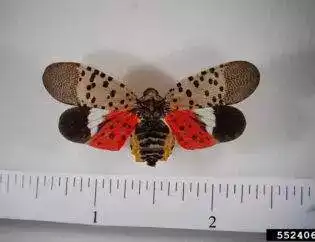
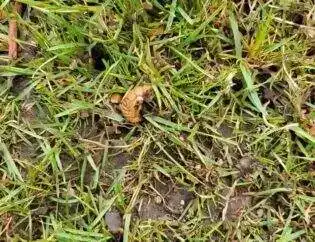
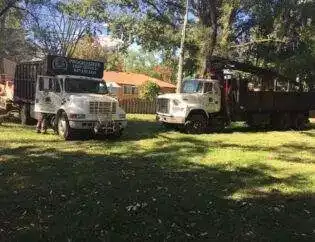
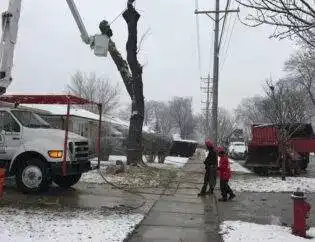
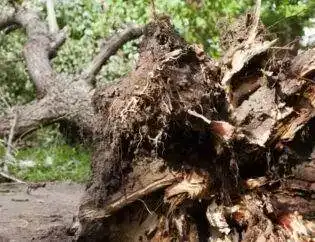
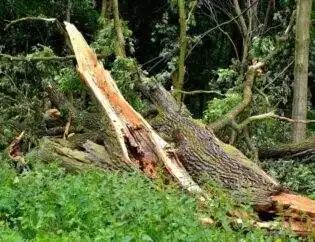

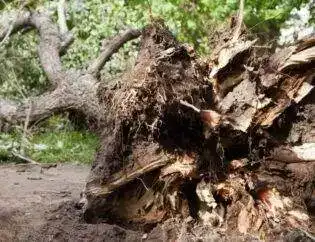


You must be logged in to post a comment.